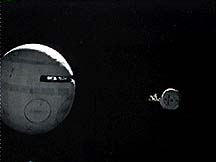
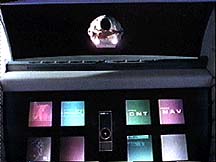
Stanley Kubrick’s 1968 film had a part of an astronaut exposed to vacuum of space. Kubrick and Arthur C. Clarke done much research of spacecraft, computer design, and other aspects of space travel to get the most realistic possible. Some of their research suggests a human could survive a brief exposure to space. In Jerome Agel’s book, The Making of Kubrick’s 2001, this scene was described U.S. Air Force tests with chimpanzees and dog proved that man could live exposed to vacuum of space for brief time. However, many aviation physicians say such a situation would kill someone and is not survivable.


HAL-9000, the computer for the spacecraft Discovery, refuses to open the pod bay doors for astronaut Bowman (played by Keir Dullea).
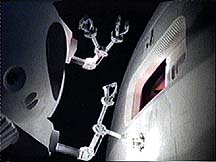
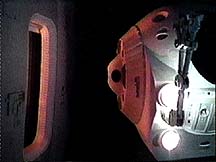
Faced with a computer not responding to commands, Bowman decides to go in through the emergency airlock of the Discovery spacecraft. Bowman opens the hatch of the emergency airlock and positions the remote pod rear door.
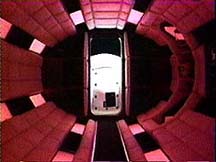
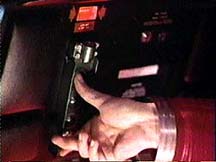
Bowman positions and arms the explosive bolts to the pod’s rear doors.
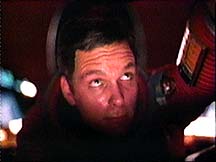
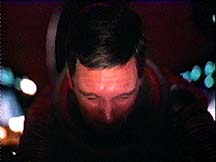
Bowman, without the helmet and gloves for his pressure suit, sets the explosive bolt timer and gets ready to charge into the emergency airlock (that is not pressurized). One particular action someone should never do is to try holding breath. The quick pressure change can cause ruptured lungs, same situation a scuba diver should never hold breath while doing a fast ascent.
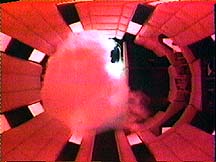
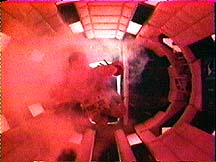
Pod door blasts open exposing Bowman to explosive decompression. Water condenses in a fog which then sublimes in the vacuum of space.
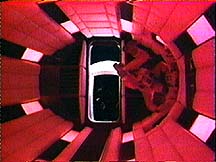
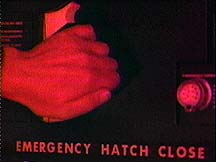
Bouncing off the opposite end of the airlock (notice pod in position, rear door open, and direct exposure to vacuum of space), Bowman quickly grabs the hatch switch that slams the airlock door closed and pressurizes the airlock.
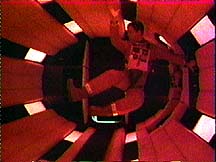
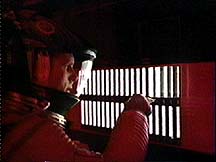
After the airlock is pressurized, Bowman dons the helmet and gloves from the airlock pressure suit (in case HAL depressurizes the Discovery spacecraft).
Bowman then gives the HAL-9000 computer the CNTL-ALT-DEL treatment.